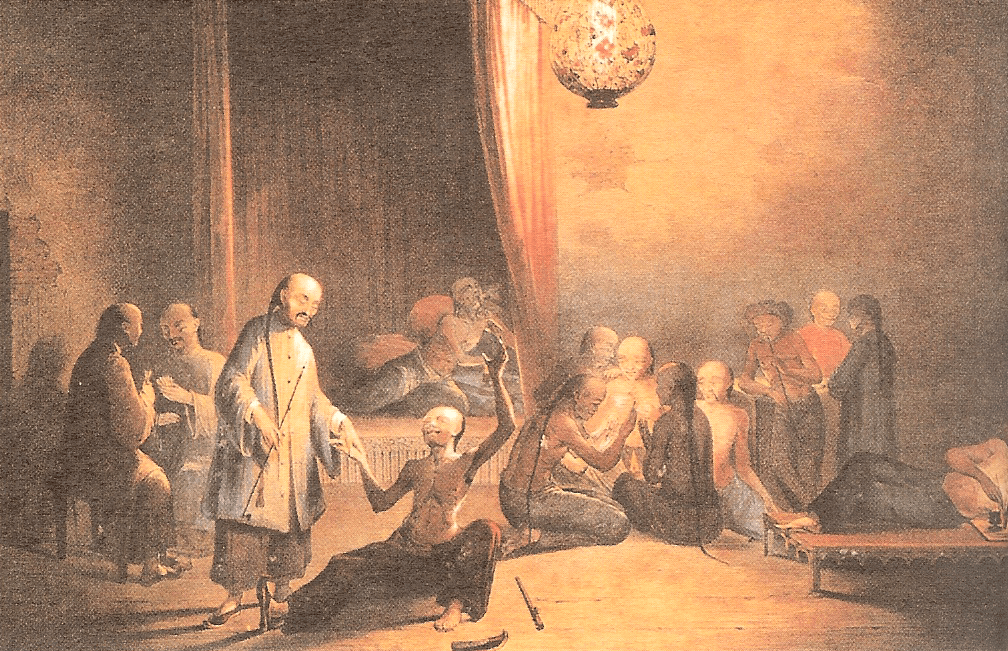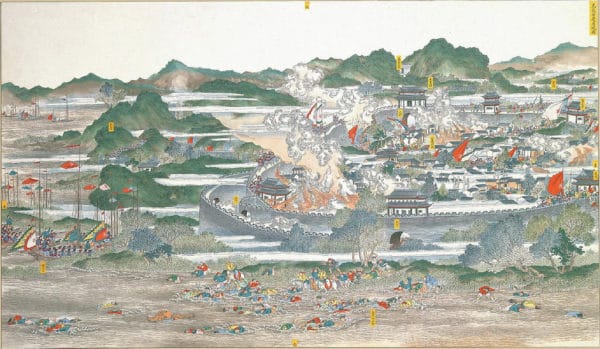Hong Xiuquan always wanted to be a scholar. From a young age, his rural family had sacrificed to give him the chance to study. And within a few years, he could recite many of the classic Chinese texts from memory. Of course, this wasn’t just an interesting party trick. Memorizing Confucian texts was a vital part of the entrance exams for becoming a court bureaucrat in Imperial China. And his family hoped that passing the Imperial Exams would give Hong a better life. Unfortunately, less than 1% of those who took the test passed, and Hong wasn’t one of them. But Hong wasn’t giving up.
Hong traveled to the city of southern city of Guangzhou to retake the exams in 1836. The city was a thriving port and a center of culture in Qing Dynasty China. But there was a darker side to the city as well. Much of the trade with the West came through Guangzhou, especially the trade in opium. Opium was illegal in China, but the British still made huge amounts of money by bringing Opium grown in India to China and selling it. The result was a flood of addiction that helped destabilize Chinese society. And of course, opium wasn’t the only thing that Westerners imported to China.

While walking through the streets of Guangzhou, Hong heard an American missionary speaking about Christianity through a Chinese interpreter. After listening for a moment, Hong was given a pamphlet on Christianity. Though Hong didn’t think much of it at the time, that chance meeting would end up being one of the most significant moments in Chinese history. Hong went on to take the exams, but once again he didn’t pass. Nor did he pass the third time he took the exam a year later. This last failure sent Hong into a nearly psychotic breakdown.
Hong spent days in a delirious state before collapsing into a fever. Over the next few days, he claimed to have had visions of heaven. There, he discovered that he had a new, heavenly family. His father, a man with a golden beard in a flowing black robe, handed Hong a magic sword and asked him to help drive out the demons that were infesting China. He then invited Hong to meet with the rest of his family, including a mysterious older brother. Hong quickly forgot the visions. But after failing the Imperial Exam a fourth time, he decided to take a closer look at the pamphlets he got from the missionaries.

After reading them closely, Hong realized that Jesus Christ mentioned in them was the older brother he saw in his vision, making him the son of God. Over the next few years, he began to gather followers and develop his ideas into a full-fledged religion, including his own version of the Bible. Many people who were angry at the increasingly-weak Qing dynasty flocked to Hong’s banner. And as the son of God and younger brother of Christ, Hong decided that he had a mission. He had to drive out the foreign influences destroying China and create a heavenly kingdom on Earth.

